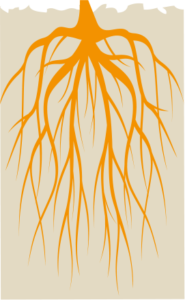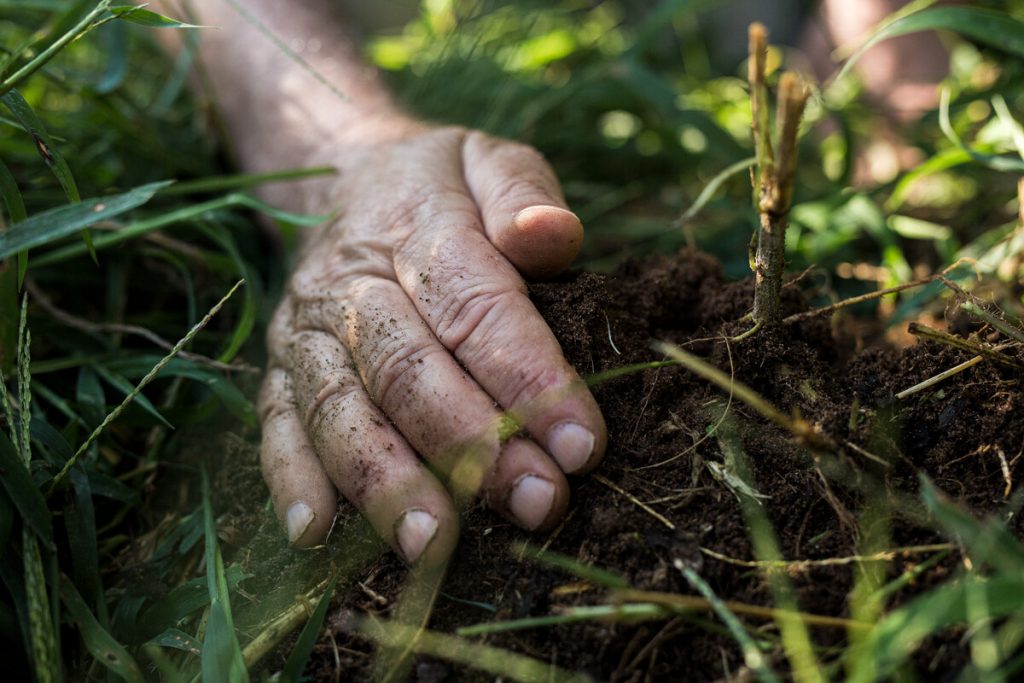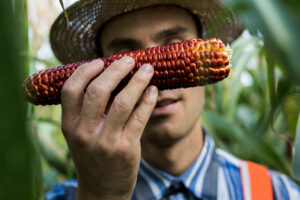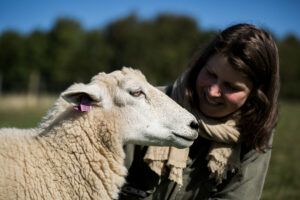Soil is the basis for our food
We need to protect our soils better! So that more people learn why this is so important, we at Demeter have started the “SoilConnection”. Together with our members and partners, we want to draw attention to the importance of soil for us today, and how we can preserve it for future generations.
How is your connection to the soil?
Are you aware of the ground beneath you?
Where is your favourite piece of earth that makes you connect with our planet?
When have you last touched real pure soil?
Why is soil so important?
Our soil is the breeding ground for everything that grows. The quality and value of our food depends on the vitality of the soil. The soil is therefore the basis of our vitality. For Demeter, the soil is the source of strength. Demeter wants to sensitise people to the close connection between man and the earth and its importance for life.
Fertile soil is sealed
But often the soil is literally trampled underfoot. More and more land is being built on or is threatened by erosion. Where once grain and potatoes grew, there are now semi-detached houses and supermarkets. Every day, worldwide areas the size of multiple football fields are being sealed.
The space for food is declining
Fifty years ago, every person in the world had half a hectare of land available for growing food. Today it is a quarter of a hectare, and by 2050 it will be only 1,000 square metres.

Soil shrinkage worldwide
More and more yield at the expense of the soil
On the remaining land, more and more is cultivated with pesticides, mineral fertilisers and monocultures. This is at the expense of the soil. Its natural functions are so severely disturbed that it cannot withstand heavy rains and storms. About 970 million tonnes of fertile soil are lost to erosion in the European Union every year – enough earth to raise the entire city of Berlin one metre.
Outlook and Demands
A sustainable arable farming strategy must protect the soil – and take organic farming as a model!
“Fertile, healthy and living soil is central to facing the social and ecological challenges of today: climate change, desertification, and environmental degradation. Caring for the soil also contributes to the supply of healthy food, clean water and protects biodiversity. That is why a future-oriented farming strategy must have the protection and regeneration of healthy soil at its centre,” demands Alysoun Bolger, Executive Board member at the Biodynamic Federation.
“We consider it essential that national and international farming strategy should support targets like 25 percent organic by 2030 and a halving of pesticide use. To almost completely ignore organic farming in this context is negligent: Demeter and other organic farmers have long been showing – and in an economically viable way! – how soil can be cultivated in such a way that it remains fertile and alive: with varied crop rotations, without pesticides, with water-conserving fertilisation and much more. This regenerative management of the soil protects the climate, the environment, biodiversity and water, and also produces healthy food,” says the Demeter executive.
She calls on the international governments to include organic farming as a fixed target indicator in their farming strategies: “Anyone who wants a sustainable and future-oriented agriculture must orientate themselves towards organic farming as a fixed indicator. Even if organic is not yet perfect, there are tried and tested and socially desired solutions for the major challenges we face.”
Soil fertility is key
Demeter Farmers care for the soil – with manure, not with chemicals.
Research
Biodynamics connects soil and plant
Various long-term studies show that Demeter agriculture (biodynamic) particularly connects soil and plant. For example, Demeter soils are more deeply rooted and contain more earthworms and microorganisms than organic soils or conventionally farmed soils. In addition, less climate-damaging nitrous oxide is emitted. The stability of soil crumbs is the basis of soil fertility and is particularly high in Demeter soils.
Selected trial results from long-term trials
- with comparable fertiliser levels and the same crop rotation.
Rooting intensity
Average 0 – 55 cm, winter roe, DOK
Source: Bachinger J. (1996): The influence of different fertilisation types (mineral, organic, biodynamic) on the temporal dynamics and spatial distribution of soil chemical and microbiological parameters of C and N dynamics and on plant and root growth of winter rye. Schriftenreihe des Forschungsring/IBDF Bd.7

Conventional 100%

Organic 103%

Biodynamic 157 %
Earthworm mass
Grams per sqm
Source: Pfiffner L, Mäder P (1997): Effects of Biodynamic, Organic and Conventional Production Systems in Earthworm Populations. Biol. Agric. Hortic. 15: 3-10

Conventional 100%

Organic 130%

Biodynamic 140 %
Activity of microorganisms
Average 0-55 cm, winter roe, DOK
Source: Raupp J (2001): Effects of biodynamic preparations in long-term fertilisation trials, Lebendige Erde 5-01, 42-44.

Conventional 100%

Organic 143%

Biodynamic 161 %
Leakage nitrous oxide
N2O measured over the crop rotation, DOK
Source: Minarsch E M, Gattinger A, Skinner C, Mäder P (2020): Potentials of organic farming in times of climate change: Lower nitrous oxide emissions especially on biodynamic arable soils. Lebendige Erde 2-20, 40-45

Conventional 100%

Organic 75%

Biodynamic 57%
Source: Lebendige Erde
Biodynamic methods enhance the soil
Find out about the role of biodynamic preparations for soil fertility.



